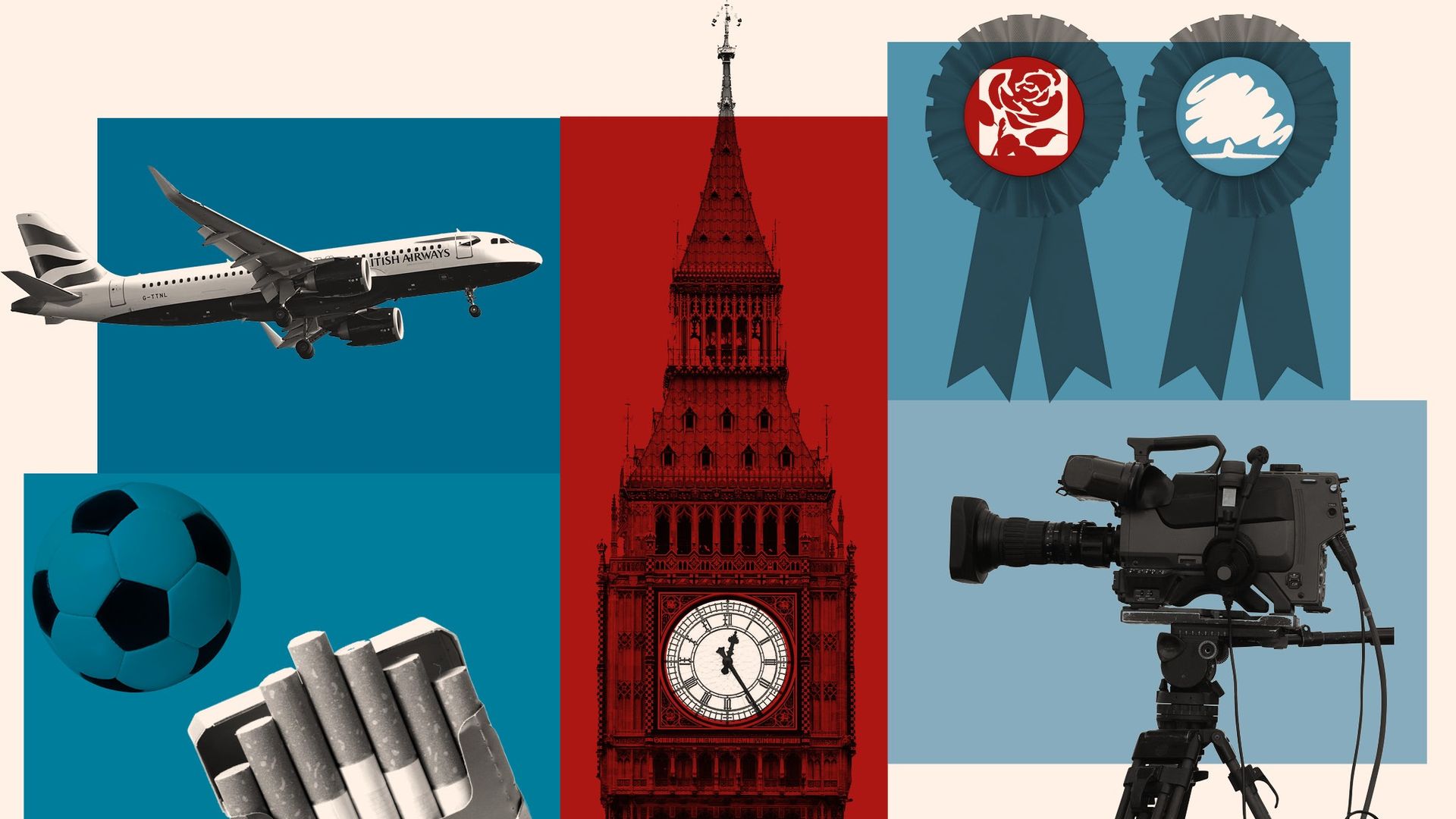
Rishi Sunak’s decision to call a general election on July 4 has set in train a series of political and constitutional events unforeseen 48 hours ago.
With an election now six weeks away, these are the some of the key moments in Britain’s new political calendar.
What does the election mean for parliament?
The prime minister’s decision to hold a July 4 poll has led to a frenetic clearing of the legislative decks before parliament is officially “prorogued” — or suspended — on Friday.
The surprise calling of a summer election has forced Sunak to hurriedly drop key bills including measures to crack down on smoking by young people and create a new football regulator for England.
Parliament will be officially dissolved on May 30, at which point all seats fall vacant. Some MPs resent the fact that they have had little time to say their farewells to colleagues.
After the election, parliament will meet on July 9, when the first business will be the election of the Speaker of the House of Commons and the swearing-in of new MPs. The State Opening will take place on July 17.
When will the manifestos appear?
Labour says its manifesto, or programme for government, is ready but it has yet to set a publication date. According to party insiders it will be “a reasonably slim document”. Sunak claims Sir Keir Starmer, leader of the main opposition party, has “no plan” for the country.
The Labour manifesto has been pulled together by Rav Athwal, a former academic and Treasury official, but under tight political control from Pat McFadden, the party’s campaign co-ordinator, and campaign chief Morgan McSweeney.
Party insiders say McFadden and McSweeney have “bomb-proofed” the manifesto to avoid it exploding in the course of a six-week campaign. Expect a focus on “stability” with promises to reform worker rights, planning and a pledge to invest in the green transition.
Allies of Sunak say the Conservative manifesto is “in good shape” and is intended to show the party has not run out of ideas. “It’s not going to be bland,” said one. The party says it expects to publish the document early in the campaign.
Will Tanner and James Nation, two policy advisers, “held the pen” on the document. Expect red-blooded commitments on tax cuts, migration, welfare reform and extra defence spending.
Will there be TV debates?
Although they feel like a long-standing tradition in British politics, TV debates between party leaders started only in 2010, a remarkable 50 years after Richard Nixon and John F Kennedy went head to head in the US presidential race in 1960.
Typically the underdog in an election has more to gain from such an encounter, so Sunak’s team have challenged Starmer to take part in a televised debate during every week of the six-week campaign.
“Don’t you think the British public deserve to know what you actually stand for?” asked Richard Holden, Tory chair, on social media platform X. It is highly unlikely Starmer will agree to such an intense schedule.
“I’ve been saying bring it on for a very, very long time,” Starmer said in January. “I’m happy to debate any time.”
There has been speculation that the Labour leader might only take part in two debates on the BBC and ITV. A spokesperson for Starmer declined to comment, but insisted: “We’re up for it.”
How will candidates be picked?
A frantic rush by all the parties to select their final candidates will now take place before the June 7 deadline to submit nomination forms to the Electoral Commission, the elections watchdog.
Both the Conservatives and Labour have scores of vacancies left to fill, with additional openings arising on Thursday after a new clutch of MPs announced they would be stepping down at this election.
The latest departures include Tory MPs Dame Eleanor Laing, deputy Commons speaker, plus ministers Jo Churchill and Huw Merriman. Labour MPs Holly Lynch and Kevan Jones have also now said they will leave parliament.
The heaviest scrutiny will fall on empty Labour and Tory “safe” seats, into which party bosses are likely to try and parachute favoured figures. The central party machines enjoy far greater influence in these eleventh-hour selections.
Will international meetings be affected?
Sunak’s decision to go for July 4 throws up some significant political and diplomatic challenges. Downing Street’s working assumption is that he will still attend the G7 summit in Bari, Italy, between June 13 and June 15.
More interesting is the fact that whoever emerges as prime minister on July 4 — opinion polls suggest it will be Starmer — will be thrust immediately on to the world stage with two big upcoming international summits.
The newly elected UK leader will travel to a Nato meeting in Washington starting on July 9, where the Ukraine war will be high on the security alliance’s agenda.
Then crucially on July 18, the new premier is scheduled to host a meeting of the European Political Community at Blenheim Palace. London’s sluggishness over fixing this date for the grouping of more than 40 European states had already riled allies.
A change of prime minister would further complicate matters. Sunak intended the event to focus on irregular migration, while Starmer is likely to favour a broader agenda.